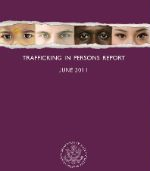IOM Reports 92 Percent Decrease in Number of Households Living in Camps
 Solutions to displacement take time, coordination and resources. According to a recent update by the International Organization for Migration (IOM), the total number of households living in camps has decreased by 92 percent compared to four and a half years ago. The government-led rental subsidy program, supported by IOM and donors, has been instrumental in helping households transition. For more information, view the full report.
Solutions to displacement take time, coordination and resources. According to a recent update by the International Organization for Migration (IOM), the total number of households living in camps has decreased by 92 percent compared to four and a half years ago. The government-led rental subsidy program, supported by IOM and donors, has been instrumental in helping households transition. For more information, view the full report.




